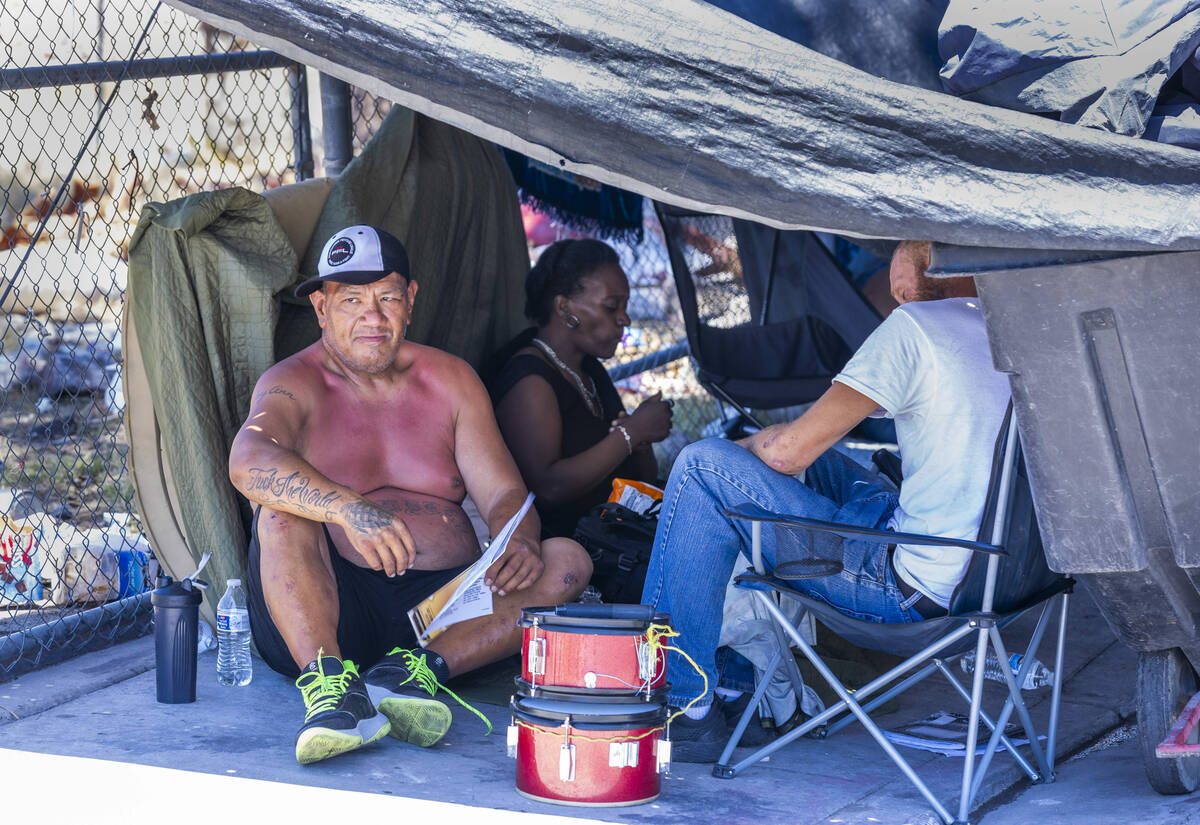‘People will die’: Nevadans on high alert to extreme heat, UNLV survey shows
Nevadans are feeling the effects of extreme heat in their lives and on their wallets, a newly published UNLV report reveals.
The report was born out of 18 community listening sessions hosted between December 2023 and July 2024 by the Nevada Environmental Justice Coalition, a group that represents state organizations invested in combating climate change. The sessions featured anonymous participants from rural and urban parts of Southern and Northern Nevada.
Disruptions to the everyday lives of residents due to the heat and skyrocketing utility costs emerged as a common theme at nearly every session, said Jackie Spicer, the coalition’s coordinator.
“Heat is a silent killer that’s not being addressed or given the attention it deserves,” Spicer said in an interview last week.
Climate scientists consider Las Vegas and Reno to be the country’s two fastest-warming cities when looking at historical average temperatures since 1970, and extreme heat was a factor in 527 deaths last year in Southern Nevada, according to the Clark County coroner.
More than half of Nevadans said paying energy bills comes at the expense of cutting back on groceries and other essentials, according to a news release, and 42 percent reported experiencing heat-related health problems like heat exhaustion and heatstroke.
In total, the sessions surveyed 1,070 Nevadans across the state, including those who are a part of the coalition’s organizations and those who aren’t. To reach people, Spicer said, she recruited participants at bus stops, offering a $25 gift card and a free meal.
That recruitment effort even led her to persuade some homeless Nevadans to stop by and lend their thoughts.
“Folks from the bus stops had the most to say about their experiences using public transportation and the struggles with trying to find any type of affordable housing,” Spicer said. “Especially when you have nothing, the barriers are so extreme.”
Other findings
The report features a wide range of issues that organizers consider to fall under environmental justice — a social movement focused on how poor and marginalized people are disproportionately affected by uses of land that don’t benefit them.
Extreme heat intersects with many of these issues, whether that’s energy or having to walk more than a half an hour in the heat to access the nearest bus stop. Concerned about heat waves, one Washoe County resident wrote, “If there is a heat wave coupled by a power outage, people will die.”
One section of the report deals with how residents perceive water issues in the nation’s driest state.
Roughly 40 percent of those surveyed believe that Nevada is running out of reliable drinking water, with some rural Nevadans noting that water quality is a major concern. Some cast blame on the mining industry and golf courses for excessive water use.
“As time goes on, the Colorado River has less water available for Nevada, especially considering our split of water received is less than that of other states,” one resident of Clark County wrote.
The Silver State has the smallest allowance from the river among seven states by far, and water availability throughout the basin has declined rapidly throughout the past two decades.
Another Clark County resident spoke of the need to “hold businesses accountable for how much water they waste.” The Southern Nevada Water Authority has a robust program where residents can report such waste to water managers.
Aside from extreme heat, other issues detailed in the report include housing affordability, public transportation and knowledge of federal clean energy incentives.
On the whole, residents found public transit networks inaccessible and housing costs far too expensive, and didn’t know much about federal programs that could help them transition their homes to cleaner sources of energy, such as solar.
Extreme heat bill in limbo
The coalition released the findings in an effort to show why Assembly Bill 96, a measure awaiting Gov. Joe Lombardo’s signature, is a step in the right direction for adapting to rising temperatures, Spicer said.
The bill would require municipal governments with more than 100,000 residents to amend their master plans to include heat mitigation efforts, such as tree canopies and access to cooling centers. The Republican governor vetoed a similar bill in 2023 and hasn’t commented publicly on whether he would approve this version.
Most of all, Spicer said she hopes the report can shed light on the lived experiences of Nevadans for lawmakers and residents.
“More than 500 of our neighbors died last year in Clark County, and we want to act like that’s not a big deal,” Spicer said. “That could be me, it could be you. That could be one of us next time.”
Nevadans Priorities Report_Spring 2025 by Tony Garcia on Scribd
Contact Alan Halaly at [email protected]. Follow @AlanHalaly on X.


















